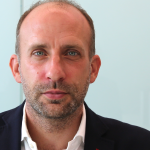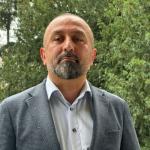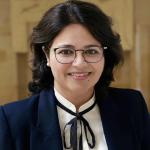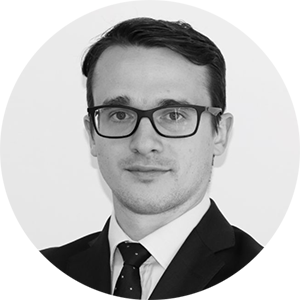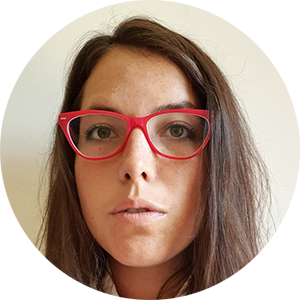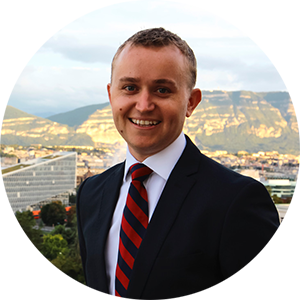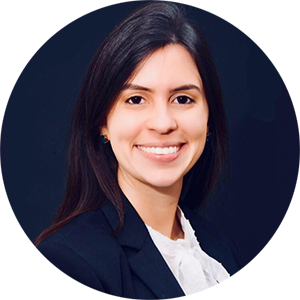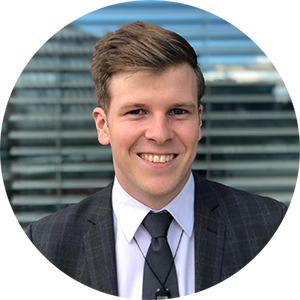The LL.M. is designed to provide a firm grounding in public international law. It allows students to tailor their studies according to their particular interests by choosing one of the three concentration streams offered: International Economic Law, International Environmental Law and Governance, and The Protection of the Individual in International Law. Students in the LL.M. Programme gain exposure to world-renowned faculty, benefit from being at the heart of international legal affairs in Geneva, and share ideas with other participants from different legal backgrounds and perspectives.
programme highlights
One-year full-time Programme
World-renowned faculty
Foundational and concentration courses
Law clinics, workshops and tutorials
Focus on professional skills
Network-building events
Located in Geneva
Overview
In theory, there is no gap between the theory and the practice of public international law. In practice, there is. The LL.M. in International Law at the Geneva Graduate Institute is designed to bridge this gap. Founded in 1927, the Graduate Institute is Europe's oldest school of international affairs. Since the time of Hans Kelsen, the Institute's International Law Department has been at the forefront of public international law in theory and practice.
The LL.M. in International Law is a one-year postgraduate degree course that provides advanced, comprehensive and practice-oriented training in international law. Students in the LL.M. Programme gain exposure to world-renowned faculty, benefit from being at the heart of international legal affairs in Geneva, and share ideas with other participants from different legal backgrounds and perspectives.
The Programme allows students to tailor their studies according to their particular interests, while compulsory courses provide a firm grounding in public international law. Our courses are designed to facilitate a deeper exploration of the most pressing questions in the field with professors and practitioners at the cutting edge of international law.
The LL.M. in International Law is also profoundly committed to developing the transferable skills necessary to succeed professionally. To this end, law clinics, workshops on legal writing, presentation skills and career development, and a variety of network-building events provide the best possible springboard to launch or advance a career in international law.
Related SDGs


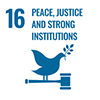
The structure and content of the LL.M. in International Law reflects the development of public international law in practice over recent years. There is an increasing need for international lawyers to master not just one concentration area in the field but also the core foundations of the international legal system, which in turn will allow them to adapt to different concentration areas.
The Programme comprises both compulsory and elective, general and specific international law courses. Not only does this provide students with a firm basis in public international law, but it also permits them to engage with the areas of international law that interest them most. In addition to their international law courses, students also have the opportunity to discuss legal problems in concentration streams, develop their professional skills in practical workshops and write an LL.M. paper. Moreover, LL.M. participants undertake real legal work for a beneficiary as part of a law clinic and gain exposure to leading practitioners through the courses and guest lectures.
Foundational Courses
This course covers the essential content of international law. It is divided into the following segments:
- International Law Making - Andrea Bianchi
- Participants in International Legal Processes - Yusra Suedi
- International Dispute Settlement - Fuad Zarbiyev
- The International Law of State Jurisdiction - Mamadou Hébié
- International Institutional Law - Nico Krisch
*Please note that this is only an indicative list of courses that have been offered in recent years and we cannot guarantee that they will be offered every year. Professor(s) internal and external- can change every year.
This course combines lectures by Graduate Institute faculty with insights from a wide-range of practitioners in both the public and private sectors. It covers both substance and skills, with a focus on how international law is used by a variety of organisations as well as how it is enforced through different means, ranging from monitoring bodies, to complaint procedures and judicial bodies. Emphasis is placed on the practice of lawyers in respect of: (i) transactions, (ii) multilateral affairs and (iii) dispute settlement.
- The Law of the Sea - Liesbeth Lijnzaad
- Treaty Interpretation - Joseph Klingler
- International Law in Domestic Courts - Odile Ammann
*Please note that this is only an indicative list of courses that have been offered in recent years and we cannot guarantee that they will be offered every year. Professor(s) internal and external- can change every year.
Concentration streams
In addition to the general courses, students choose one of the following concentration streams:
In the last decade the international protection of the environment has emerged as one of the main priorities of governments, international organisations and the private sector. This stream trains students to understand this complex area of international law, as well as frameworks regarding climate change and the use of natural resources, particularly in connection with water and food security. It also explores how environmental change and governance affects and intersects with other areas of law such as human rights. Special emphasis is placed on the rules governing the entitlement to and distribution of these resources and on real-life disputes where such rules have been applied.
- Compliance Mechanisms under Environment Treaties - Makane Moïse Mbengue
- International Climat Change Law - Anne Saab
- The Global Governance of Carbon Pricing - Alice Pirlot
- Principles of International Environmental Law - Laurence Boisson de Chazournes
*Please note that this is only an indicative list of courses that have been offered in recent years and we cannot guarantee that they will be offered every year. Professor(s) internal and external- can change every year.
The IEL concentration stream trains students to understand the regulation of international economic relations through the prisms of international trade, investment and intellectual property law. Students analyse the highly complex regulatory frameworks applicable to trade and foreign direct investment transactions and the growing body of case-law arising from a variety of dispute settlement mechanisms, such as the WTO Dispute Settlement Body or investment arbitration.
- The Law and Policy of Free Trade Agreements - Kathleen Claussen
- Investor-State Arbitration - August Reinisch
- International Commercial Arbitration - Thomas Schultz
- Compensation and Damages in International Economic Disputes - Michele Potesta
*Please note that this is only an indicative list of courses that have been offered in recent years and we cannot guarantee that they will be offered every year. Professor(s) internal and external- can change every year.
This stream trains students to understand the various international legal frameworks applicable to the protection of people, as well as their increasing interaction. From a substantive perspective, students gain exposure to human rights, humanitarian law, migration law and refugee law. Particular emphasis is placed on how these different bodies of law interact with each other to strengthen the protection offered to refugees, internally displaced persons, minorities and the victims of armed conflict.
- International Human Rights and Litigation - Yuval Shany
- System of International Criminal Justice – Giulia Pinzauti
- The Laws of War - Andrew Clapham
- The Challenges of Refugee Protection in International Law - Vincent Chetail
*Please note that this is only an indicative list of courses that have been offered in recent years and we cannot guarantee that they will be offered every year. Professor(s) internal and external- can change every year.
All Concentration streams include
1) Concentration modules
In these sessions, students have the opportunity to discuss a selection of readings in a small group with a professor. They allow students to explore, debate and ask deeper questions on topics of their concentration
2) Law clinic
Students complete a practical assignment for a real client. They work in groups and under the supervision of professors on specific legal questions related to their specialty stream that have been posed by external clients, such as international organisations, governments or NGOs. In addition, skills sessions are held with invited professionals to improve legal writing and oral presentation skills. At the end of the semester, the groups submit written legal memoranda and orally present their projects in class in the presence of the client and invited guests.
Students choose two semester-long courses from those offered by the International Law Department.
Students write a 8,000-word paper on a topic of their interest. It should be an original piece of research and be oriented for publication in practitioner journals.
Workshops
Workshops are organised with professionals and experts, providing students with an opportunity to acquire practical knowledge, develop professional skils and receive advice on career development.
Immersion work
Guest lectures, roundtables, colloquia and institution visits all allow students to engage in a very practical way with the leading experts, pressing topics and fundamental organs of international law.
- Applications open: Fall 2025
- Deadline: 19 January 2026
- Shortlisted candidates will be interviewed online between the end of January and mid-March 2026
- Deadline for notification: 31 March 2026
To be eligible for the LL.M. Programme, applicants must possess a complete legal education which entitles them to sit for the bar exam in their country of origin, e.g. the Maîtrise de droit in Switzerland, the Bachelor of Laws (LL.B.) in the United Kingdom, the Juris Doctor (J.D.) in the United States, the Maîtrise de droit (or equivalent title from a Haute Ecole) in France or the Erstes Juristisches Staatsexamen in Germany. However, please note that there is no need to have completed any professional courses requirements, such as the Ecole d'avocature in Switzerland or Legal Practice Course in the United Kingdom, or other training courses organised by the bar association of the respective country.
The Graduate Institute offers excellent housing options in the heart of international Geneva. We are pleased to announce that, as of autumn 2020, the Institute will be able to provide accommodation for all its students. Please get in touch with the Programme Manager for questions related to your housing application.
All students must have an excellent command of English. Students whose mother tongue is not English, who do not have secondary or post-secondary qualifications taught in English, or who have not spent a minimum of one year studying full-time at the university level in English must provide a certificate to prove their mastery of English.
Recognised tests and scores
TOEFL (Test of English as Foreign Language)
- Internet-test: 100
- Paper-test: 600
- Computer-based test: 250
IELTS (International English Language Testing System): 7.0
CPE (Certificate of Proficiency in English, Cambridge English, part of the University of Cambridge): A-B-C
CAE (Cambridge Advanced English, Cambridge English, part of the University of Cambridge): AB
To apply for the LL.M. in International Law, applicants must complete an online application form, available here.
In addition, the following supporting documents must be uploaded during the online application process:
- A curriculum vitae (in English or French);
- A letter of motivation describing why you wish to pursue the LL.M. programme (1 page maximum);
- Copies of official transcripts of all grades obtained in all university exams, accompanied by grade scales and their values;*
- Copies of all university diplomas and qualifications obtained;*
- English language test results. NB: French is not required for the LL.M. Programme;
- Two reference letters (in French or English) are also required. The applicant must nominate two referees and will be asked to provide the professional email addresses of their referees on the application form. Once the applicant has validated their application, the nominated referees will automatically be prompted to upload their reference letters.
* a certified translation (in English or French) must be provided for all documents.
The following documents can be uploaded during the online application process, although those are not compulsory for admission :
- A copy of the page(s) of your passport with your surname, first name and nationality;
- A recent passport-sized photograph
We require a non-refundable application fee of CHF 100 for the LL.M. in International Law.
Terms and conditions
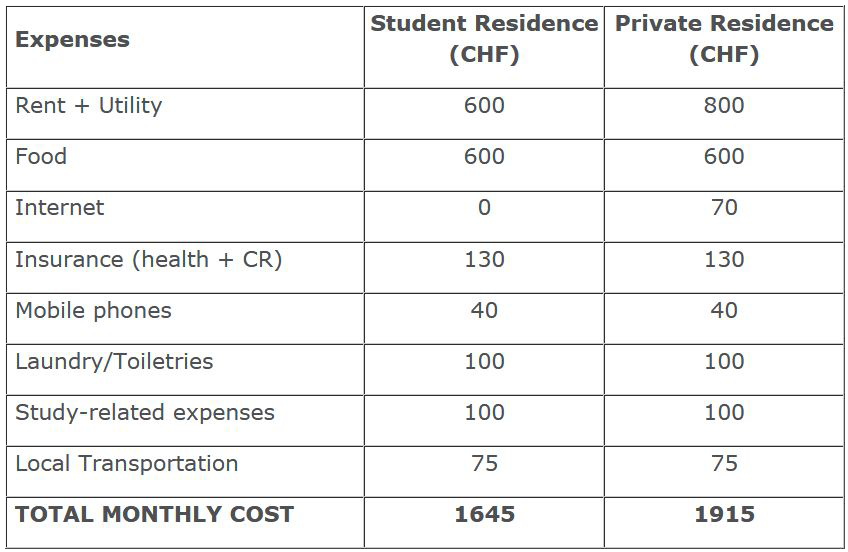
All students must apply for a student residence permit (Permis B) from the Office Cantonal de la Population (OCP) within eight days of their arrival in Switzerland.
Information on the application procedure can be found with:
Service des étrangers
Rue David-Dufour 3
1211 Genève 8
Tel.: +41 (0)22 327 48 88
Fax: +41 (0)22 327 75 91
Depending on your country of origin, you may also need a visa to enter/stay in Switzerland. If you are a citizen of an EU/EFTA country, you do not need a visa to enter Switzerland but will still need to apply for a residence permit.
The Federal Office for Migration's website provides an overview of travel documents and visa provisions for entry into Switzerland. You can also contact the main Swiss embassy or consulate in your country. The residence permit and visa costs vary but can be up to 300 CHF.
LL.M. Clinic Programmes
Each year, LL.M. participants work in groups on a cutting-edge research project with one of our external clinical beneficiaries. Clinic projects are thematically related to the three concentration streams of the LL.M., namely International Economic Law, International Environmental Law and Governance, or The Protection of the Individual in International Law. Our clinical beneficiaries have included:
- The Office of the High Commissioner for Human Rights (OHCHR)
- The United Nations High Commissioner for Refugees (UNHCR)
- Amnesty International
- The International Commission of Jurists (ICJ)
- The Association for the Prevention of Torture (APT)
- International Lesbian, Gay, Bisexual, Trans and Intersex Association (ILGA)
- Centre for Civil and Political Rights
Careers
The LL.M. in International Law has been designed to enhance your career prospects. To do so, we will help you craft and strengthen the necessary skills to launch or advance your career in a competitive jobs market. In addition to the substantive knowledge you will acquire, the LL.M. in International Law places great emphasis on honing practical legal skills, such as in legal research and writing, but also highly transferable skills, including presentation and interpersonal skills. Moreover, our location at the heart of international legal affairs in Geneva offers an array of opportunities for legal internships, traineeships and employment. Indeed, students from the Graduate Institute have a strong track record of gaining employment in the legal profession, international and non-governmental organisations, government ministries and diplomacy, as well as various private sector destinations. The following features of the LL.M. Programme help to illustrate our commitment to your career:
Practical Legal Skills
The LL.M. programme aims to develop legal research, writing and advocacy skills through a series of practical workshops, the LL.M. paper and student participation in a law clinic. The latter also facilitates valuable client-facing experience.
Practitioner Sessions
Sessions with successful practitioners in the field of international law are offered to LL.M. students, enabling them to improve their professional skills in a number of areas and giving key insights to the professional world of international law.
Career Events
Workshops and career events (such as the Connexion Careers Fair) organised by the Careers Service of The Graduate Institute are open to participants of the LL.M.
Faculty
Staff
LL.M. 10-year anniversary
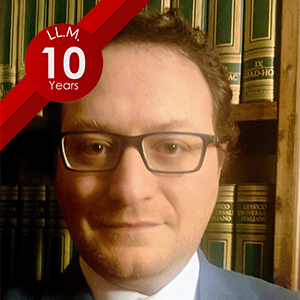
Giuseppe Poderati '13
Doctoral researcher in International Environmental Law at Wuhan University, China
Giuseppe Poderati was one of the first students to complete the LL.M. in 2013 and thinks back:
"At the Geneva Graduate Institute, I gained in-depth theoretical knowledge about Advocacy in International Affairs and Public International Law with a focus on environmental-related issues. Professors and instructors of some of the highest calibre gave noteworthy lectures during my attendance at the executive education programmes. Also, I had the opportunity to sharpen and develop my technical skills with very talented colleagues worldwide. From this perspective, the Institute offers an academic environment conducive to learning and improving oneself."
Upcoming events
Subscribe to our newsletter










